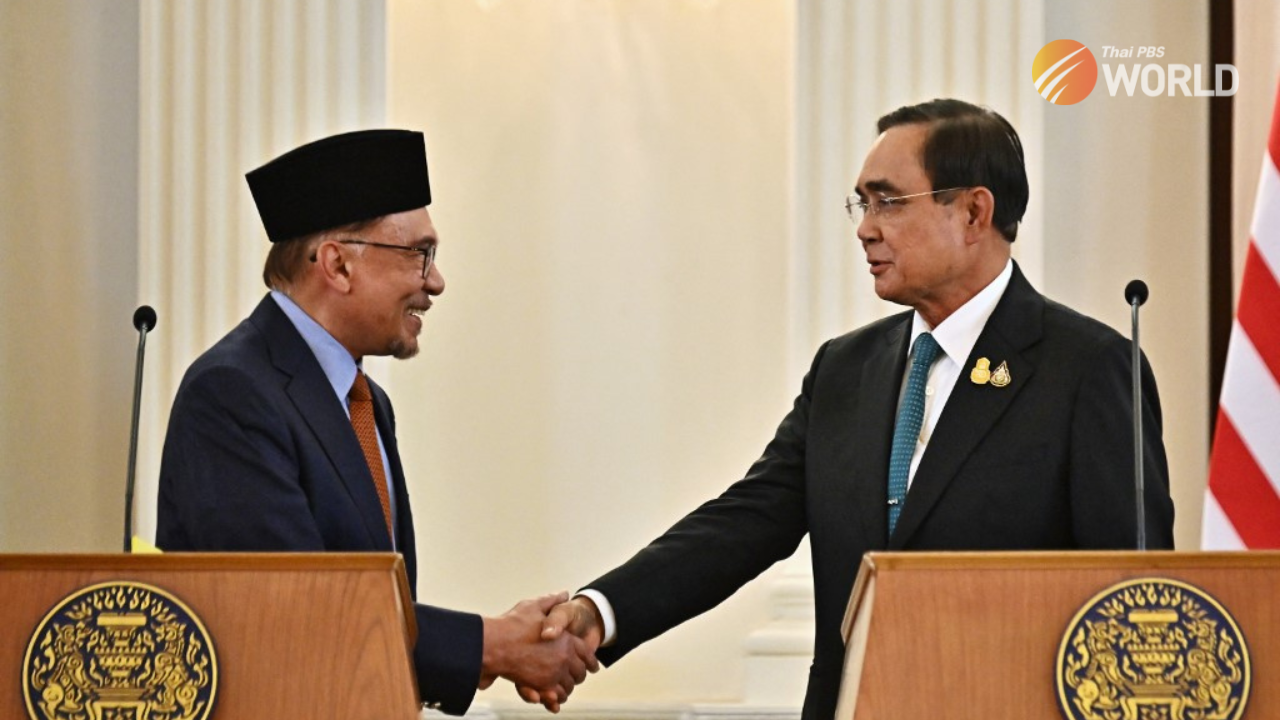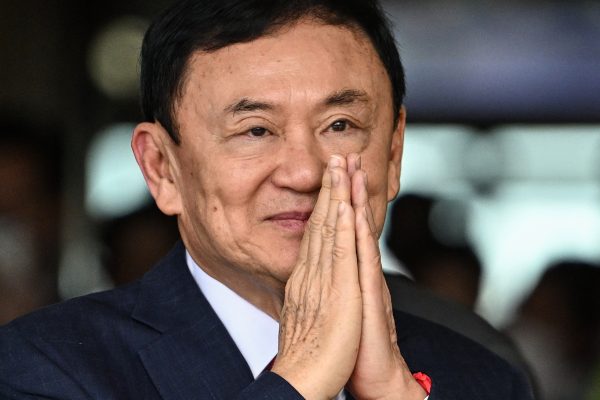Anwar’s visit sets tone for increase in bilateral trade and investment

Resolving the logistics bottleneck at the Customs checkpoint in the South and increasing overall trade and investment were high on the agenda of Malaysia’s newly elected Prime Minister Anwar Ibrahim when he visited Thailand last week.
Anwar paid an official trip to Thailand on February 9-10 to introduce himself after taking the helm of his country’s leadership in November. He had previously met with the leaders of Brunei, Indonesia and Singapore.
He met with PM General Prayut Chan-o-cha on February 9, discussing bilateral cooperation and Asean affairs.
On the economic front, the two leaders agreed to continue to work together to achieve the ambitious goal of increasing two-way trade to US$30 billion by 2025 from about $27 billion last year and $24 billion in 2021. Thailand had a trade deficit of $1.8 billion with Malaysia in 2022.
Customs checkpoint
The Thai government pushed Anwar to speed up construction of a road about a kilometre long to connect Thailand’s Sadao Customs checkpoint with the Malaysian checkpoint.
Thailand had finished construction of the new Sadao Customs’ checkpoint many years ago, but there is no road on the Malaysia side to connect its Bukit Kayu Hitam Customs checkpoint with the Thai side.
According to a source, concerned government agencies in Malaysia have not yet reached a consensus on building the road despite getting a green light from the Finance Ministry.
The delay has created a logistics bottleneck for transporting goods from Thailand to Malaysia.
Momentum for growth triangle
Prayut and Anwar also discussed further development of the Indonesia-Malaysia-
The IMT-GT was initiated in 1993 and covers 14 provinces in southern Thailand: Krabi, Nakhon Si Thammarat, Narathiwat, Pattani, Phatthalung, Satun, Songkhla, Trang, Yala, Chumphon, Ranong, Surat Thani, Phang Nga, and Phuket; eight northern states of Peninsular Malaysia: Kedah, Kelantan, Melaka, Negeri Sembilan, Penang, Perak, Perlis, and Selangor; and 10 provinces of Sumatra, Indonesia: Aceh, Bangka-Belitung, Bengkulu, Jambi, Lampung, North Sumatra, Riau, Riau Islands, South Sumatra, and West Sumatra.
Anwar gave the Thai business community assurances on logistics connectivity at a forum entitled “The Future of Asean” in Bangkok, where he gave a keynote speech and joined a question-and-answer session on February 10. The event was organized by the Malaysian-Thai Chamber of Commerce.
Exclusive – A Conversation with Malaysian Prime Minister Anwar Ibrahim
Prioritizing connectivity
Anwar said his government was giving priority to connectivity of infrastructure projects between the two countries.
Anwar also called for an Asian Monetary Fund (AMF) that would include countries such as China, Japan and South Korea. The proposal by Japan to create an AMF to combat the 1997 Asian Financial Crisis was never established following opposition from the US, and reluctance by China to join it.
He sees potential for joint investment projects in energy, electric car production, digital and other modern sectors.
He also touched on cooperation among ASEAN countries, saying it should be based on each country’s competitive advantage so that it benefits everyone.
Malaysia is among Thailand’s 10 largest export markets. Two-way trade was worth $27 billion in 2022. Thailand’s top exports to Malaysia included electrical and electronic equipment, machinery, vehicles and rubbers, and imports were electrical and electronic equipment, mineral fuels, oils and distillation products, machinery and plastics.
Over 1.9 million Malaysian tourists, the largest overseas group, visited Thailand last year, making an important contribution to the recovery of the Thai economy after the COVID-19 pandemic.
Tackling unrest in deep South
Years of Muslim insurgency in the deep South have impacted Thailand’s economic development. The Thai government has asked the Malaysian government to facilitate negotiations with separatist groups in the South. Anwar promised to give his support and said he was against violence by any side. “We have zero tolerance for violence,” he said firmly.
Regarding the ongoing tensions between China and the United States, Anwar said Asean should engage independently with both sides.
ASEAN, meanwhile, is benefiting from the geopolitical issue as many investors are moving their investments and some production bases from China to Asean countries, such as Vietnam, Indonesia, Malaysia and Thailand.
Exclusive: Anwar calls for new ASEAN approaches to deal with Myanmar crisis
More cooperation
Anwar and Prayut witnessed the signing of four memorandums of understanding (MoUs) between the two sides.
The Electricity Generating Authority of Thailand signed an MoU with Tenaga Nasional Berhad (TNB) to jointly explore opportunities for connecting the electricity grids of the two countries.
TNB Renewable Sdn Bhd (TRe) signed an MoU with Planet Utility Co Ltd (Planet Utility) to jointly look into renewal technology and power production in Thailand. TNB Power Generation Sdn Bhd signed an agreement with B Grimm Power Public Co to cooperate on developing renewable energy in Southeast Asia.
Malaysia Digital Economy Corporation Sdn Bhd signed an MoU with Thailand’s Digital Economic Promotion Agency for cooperation in the digital economy.
Somjai Phagaphasvivat, an independent political and economic analyst, said that the two sides would face a challenge to increase bilateral trade to $30 billion as most of their products may not be complimentary.
Both Malaysia and Thailand are export-oriented economies and compete with each other for global market share. For example, the two countries are rivals in export of rubber products, palm oil and durian, a tropical fruit.
By Thai PBS World’s Business Desk






